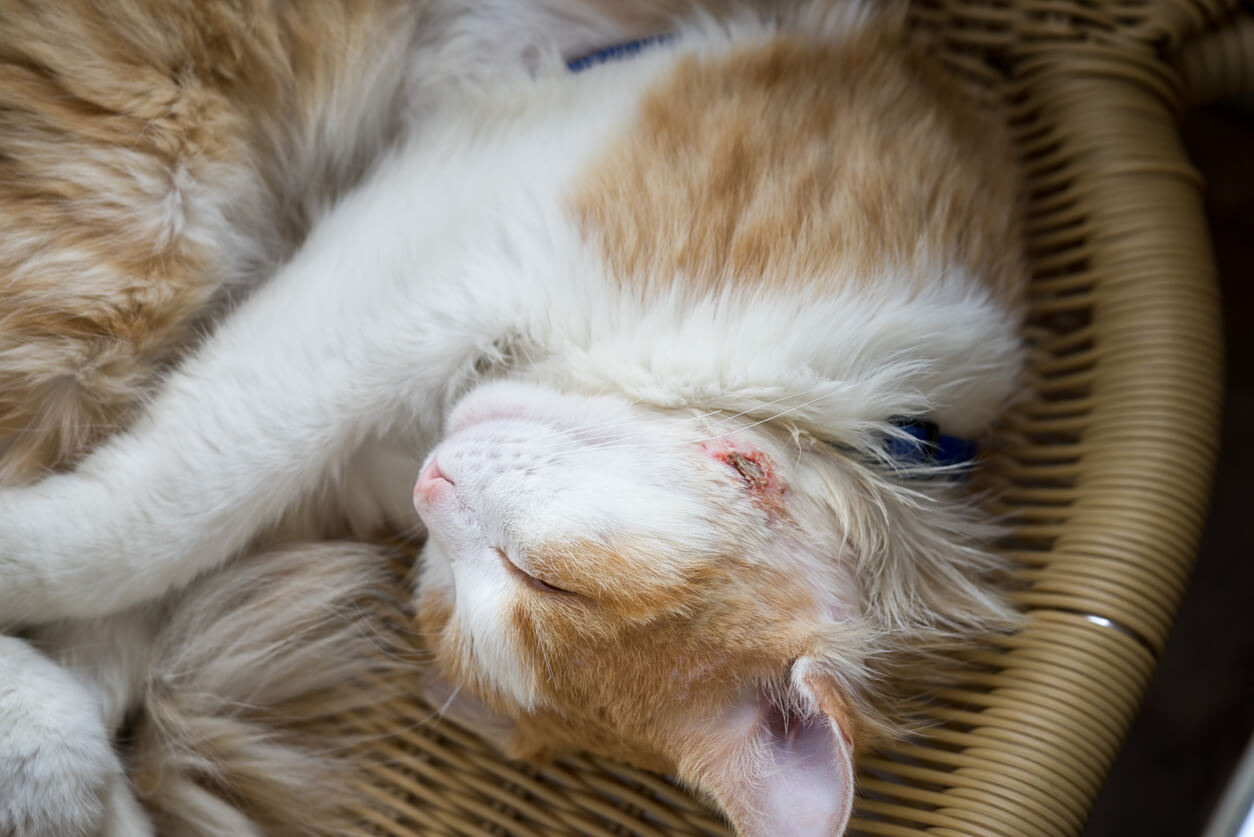How Bed Bugs Can Affect Your Pets

In the world of invasive insects, bed bugs are masters of stealth, sneaking into our nights and leaving their mark in the form of annoying bites. But have you ever wondered what impact these parasites have on your pets’ well-being? Learning how to control potential bed bug invasions is vital to the health of the entire family.
Often, it’s assumed that these creatures only have a voracious appetite for human blood, leaving our furry loved ones behind in their nocturnal quest. However, the reality is that these insects can pose as much of a threat to you as they do to your pets.
Keep reading: Common Bug Bites on Dogs
4 problems caused by bed bugs in pets
According to information from the book Pests in and Around the Southern Home, published by the University of Florida, these tiny creatures don’t discriminate when it comes to choosing their dinner hosts. In other words, their appetite isn’t limited to human blood, and the blood of domestic animals is also one of their favorites. Here are some of the conditions that bed bugs can cause your furry ones:
1. Irritated, itchy skin

Bed bugs are known for their bites that can be very irritating to both humans and animals. When these insects infest your home, they often hide in the cracks and crevices of your furniture, including your dog’s or cat’s bed. As a result, your furry friends can become unwanted victims of these parasites.
Bed bug bites can cause your pets to scratch incessantly, resulting in redness, swelling, and open wounds on their skin. This isn’t only uncomfortable for your pets but can also create an entry point for secondary infections.
If you notice your pets scratching more than usual, it’s essential that you inspect their bedding and consult a veterinarian. In turn, addressing the source of the infestation by hiring professional bed bug extermination services is crucial to ensure their well-being.
2. Allergic reactions
Like humans, pets can have allergic reactions to bed bug bites. Common symptoms of this type of allergy in animals include excessive itching, hair loss, hives, and skin infections. In these cases, a veterinarian should be consulted to evaluate your pet so that the reaction doesn’t spread further.
According to the American Veterinary Medical Association (AVMA), here are some recommendations to keep these insects away from your pets and your home.
- Wash your furry friend’s bedding in hot water: Make sure the wash temperature is at least 120 degrees Fahrenheit. Likewise, use a medium/high or high temperature when drying bedding in the dryer.
- Replace your pet’s bedding if it has holes: Bed bugs live and reproduce in cracks and small holes to suck your dog’s or cat’s blood during the night. So change their bedding if it’s already very deteriorated.
- Prevent infestations in your home: If you notice bed bugs near your pet, you should conduct regular inspections and hire professional fumigation services to protect everyone in your family.
- Discard infested items: For example, if you’re throwing out your dog’s bed because it’s infested with bed bugs, place it in a plastic bag, seal it, and clearly mark that it’s infested.
3. Behavioral changes
In some scenarios, bed bugs can disturb the peace and comfort of your home, causing stress and anxiety in your pets. As the bites become increasingly uncomfortable, you may notice the following changes in your furry one’s behavior.
- Aggression or irritability
- Constant restlessness
- Hiding or seeking isolation
- Decreased appetite
- Excessive grooming or licking
4. Health problems

According to Pets and Parasites, there’s no evidence that bed bugs transmit diseases to pets. However, their presence can lead to secondary health problems. Scratching and biting can create open wounds on animals, making them susceptible to skin infections or more serious conditions, such as abscesses.
In addition, the stress caused by a bed bug infestation can weaken your pet’s immune system, making them more prone to other illnesses. Keeping your home free of these parasites through regular inspections and extermination services can help maintain the health and well-being of your furry ones.
You might be interested in: How to Get Rid of Fleas in Your Home
Eradicate bed bugs from your home and seek professional help
In conclusion, the fight against these bugs isn’t only limited to humans, as they can also affect your beloved pets.
But remember that the key to protecting your furry friends lies not only in the early detection of infestation, but also in the implementation of preventive measures and timely veterinary treatment.
All cited sources were thoroughly reviewed by our team to ensure their quality, reliability, currency, and validity. The bibliography of this article was considered reliable and of academic or scientific accuracy.
- American Veterinary Medical Association (AVMA). Bed Bugs and Pets FAQ. Recuperado el 01/12/2023 de: https://www.avma.org/resources/pet-owners/petcare/bed-bugs-and-pets-faq
- Koehler PG, Pereira RM, Lehnert MP, J Hertz. (2022). Pests in and around the Southern Home. UF/IFAS Extension, University of Florida. https://edis.ifas.ufl.edu/publication/IG083
- Pets and Parasites. Parasites & Your Family. Recuperado el 01/12/2023 de: https://www.petsandparasites.org/parasites-and-your-family/bed-bugs-theyre-ba-aack
This text is provided for informational purposes only and does not replace consultation with a professional. If in doubt, consult your specialist.